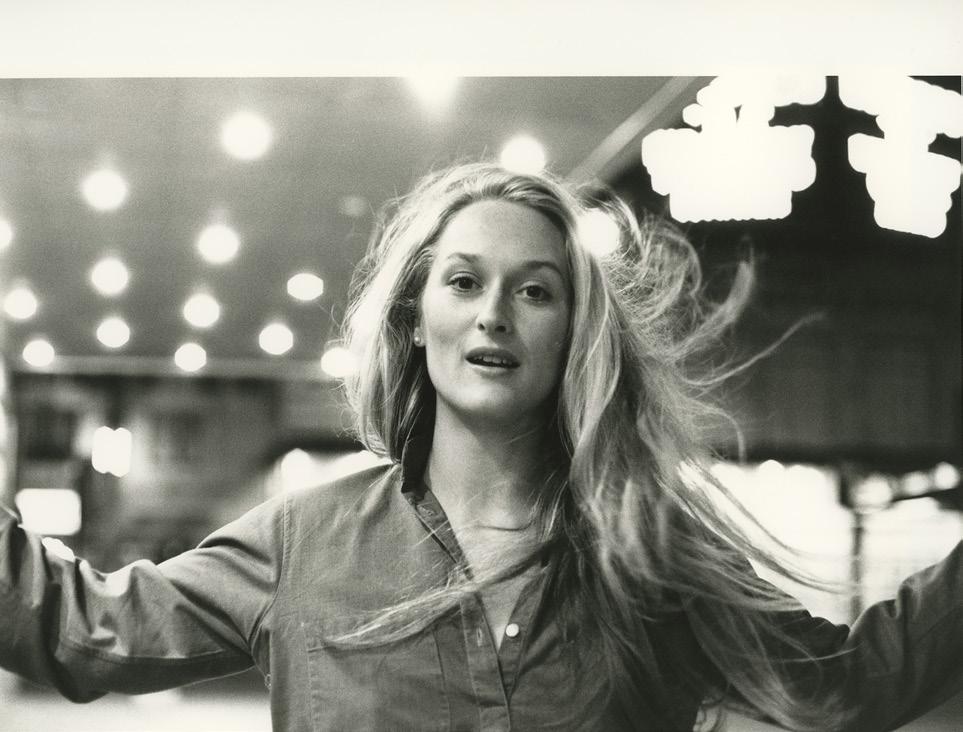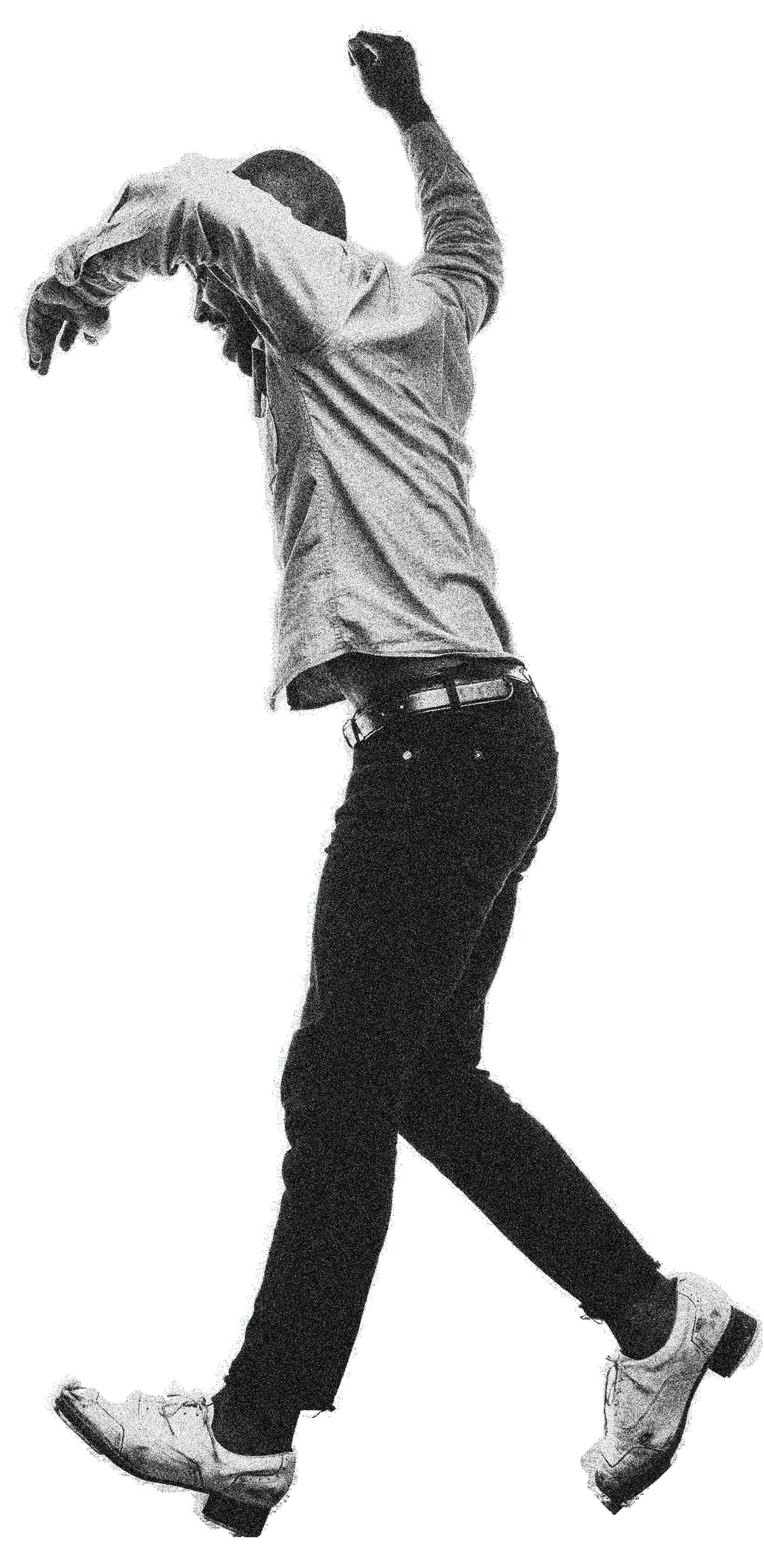




Welcome back to Modlin Center for the Arts! I am grateful for this opportunity to be together again and thrilled with the season we have put together because I know that every artist can—and will—create unforgettable moments.
Across our 2022-2023 season, you will find artists from a variety of backgrounds and cultures, with an emphasis on BIPOC and women-led companies. And you will discover a range of stories, dance, and music of many different genres—some familiar, others new. Each performance is a unique window into the human experience, which I hope will open new paths for conversation and connection.
As the season continues, I look forward to visiting with you in the lobby and hearing about your experiences at the Modlin Center. We want you to be a part of the Modlin community. The Department of Music Free Concert Series and UR Free Theatre and Dance season add 30+ additional opportunities to see compelling performances. And UR Museums host exhibitions and programs that are free and open to the public. Thank you for being with us.
Paul Brohan, Executive Director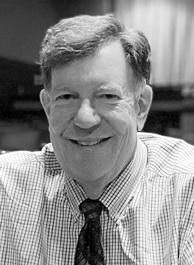

FRI. 9 7:30 PM David Esleck Trio
THU. 15 7:30 PM Steep Canyon Rangers
SUN. 18 3:00 PM Joanne Kong, piano, harpsichord and clavichord
THU. 22 7:30 PM DeLanna Studi, And So We Walked
FRI. 23 7:30 PM Family Weekend Concert
WED. 28 7:30 PM Dreamers' Circus
THU.-FRI 29-30 7:30 PM Smart People
SAT. 1 7:30 PM Smart People
SUN. 2 2:00 PM Smart People
SUN. 2 7:30 PM Dorrance Dance, SOUNDspace
THU. 6 7:30 PM Rhiannon Giddens and Francesco Turrisi
FRI. 14 7:30 PM Bill Irwin, On Beckett
SUN. 16 2:00 PM 12th Annual Celebration of Dance
FRI. 21 7:30 PM Step Afrika!, Drumfolk
SUN. 23 3:00 PM Sonia De Los Santos, Family Arts Day
THU. 27 7:30 PM Susanna Phillips, soprano SUN, 30 3:00 PM UR Schola Cantorum and Women's Chorale
FRI.-SAT. 4-5 Multiple Third Practice Electroacoustic Music Festival*
WED. 9 7:30 PM UR Jazz & Contemporary Combos
THUR. 10 7:30 PM Aaron Diehl Trio
SAT. 12 6:30 PM 8:30 PM Amal Kassir
SUN. 13 3:00 PM Preservation Hall Jazz Band, 60 thAnniversary Celebration WED. 16 7:30 PM UR Jazz Ensemble
THU.-SAT. 17-19 7:30 PM Miss You Like Hell
SUN. 20 2:00 PM Miss You Like Hell
SUN. 20 3:00 PM Global Sounds
MON. 21 7:30 PM UR Wind Ensemble
MON. 28 7:30 PM UR Chamber Ensembles WED. 30 7:30 PM UR Symphony Orchestra
SUN. 4 5:00 PM 8:00 PM 49th Annual Festival of Lessons and Carols
thirpractice.org for a full schedule of events.
SAT. 21 7:30 PM Kronos Quartet, At War With Ourselves
FRI. 27 7:30 PM Mark Morris Dance Group, The Look of Love
WED. 1 7:30 PM Richard Becker, piano
FRI. 3 7:30 PM Fred Hersch and esperanza spalding
SUN. 5 3:00 PM Anthony McGill, clarinet, and Gloria Chien, piano
FRI. 10 7:30 PM Rosanne Cash
WED. 15 7:30 PM Joshua Redman, 3x3
SUN. 19 3:00 PM Third Coast Percussion and Flutronix
WED. 22 7:30 PM Chamber Music Society of Lincoln Center
THU.-SAT. 24-26 7:30 PM University Dancers 38th Annual Concert
SUN. 26 3:00 PM Kayhan Kalhor, kamancheh
WED. 1 7:30 PM Ashwini Ramaswamy, Let the Crows Come SUN. 19 3:00 PM Doris Wylee-Becker, piano
MON. 20 7:30 PM Neumann Lecture on Music, Dr. Sherry D. Lee, Professor of Musicology
MON. 27 7:30 PM Bruce Stevens, organ
FRI. 31 7:30 PM Christian McBride’s New Jawn
WED. 5 7:30 PM UR Symphony Orchestra
THUR. 6 7:30 PM UR Jazz & Contemporary Combos
MON. 10 7:30 PM UR Wind Ensemble
WED. 12 7:30 PM Leyla McCalla
THU.-SAT. 13-15 7:30 PM The Rivals
SAT. 15 3:00 PM Global Sounds
SUN, 16 3:00 PM UR Schola Cantorum and Women's Chorale
SUN. 16 2:00 PM The Rivals
MON. 17 7:30 PM UR Chamber Ensembles
THU. 20 7:30 PM Cuban Spectacular
SAT. 13 11:00 AM 3:00 PM Compagnia TPO, Farfalle
SUN. 14 1:00 PM 3:00 PM Compagnia TPO, Farfalle
SUSANNA PHILLIPS, accompanied by CRAIG TERRY PROGRAM
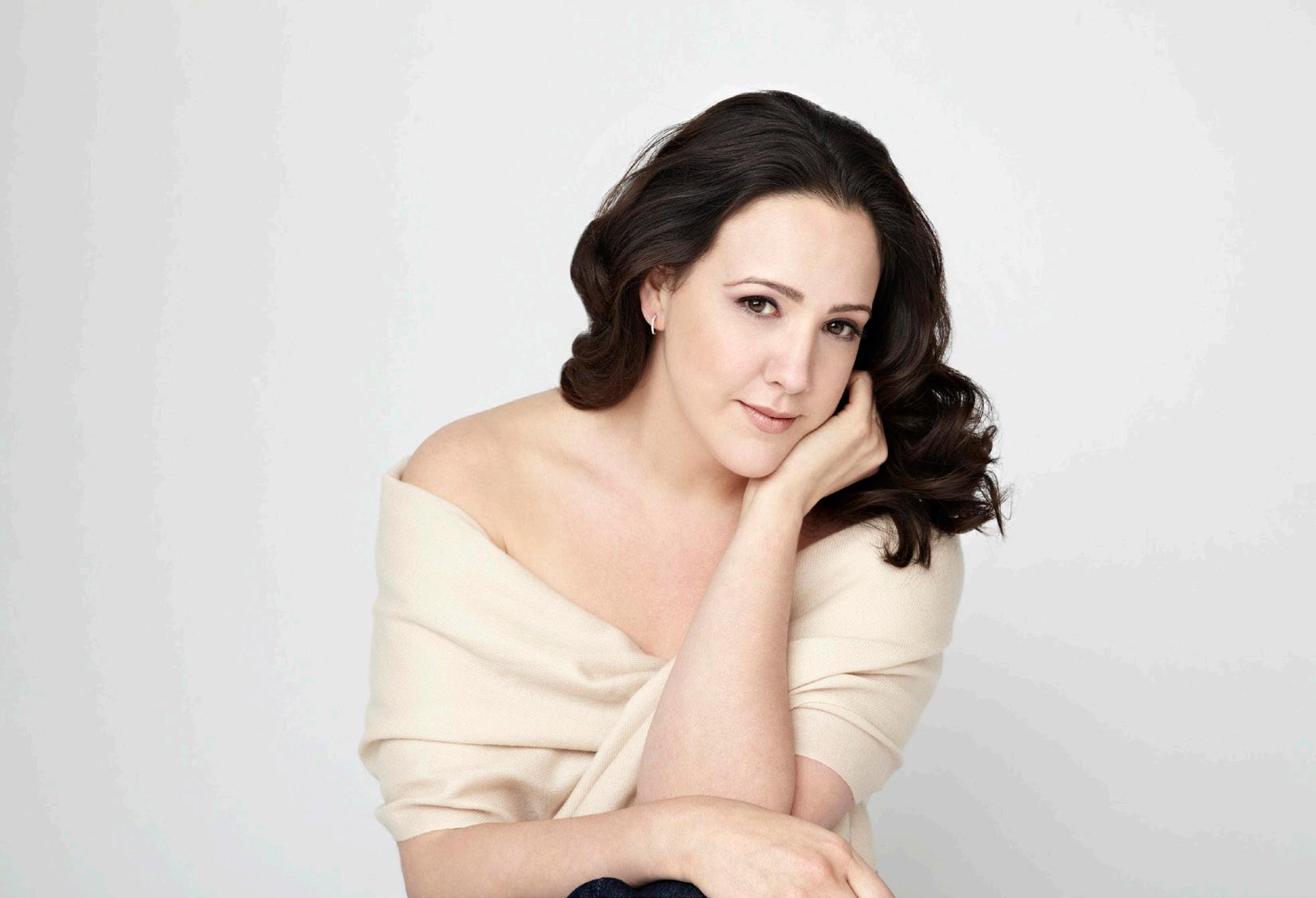
Dich teure Halle - Wagner Alma Mahler - 5 songs
Craig solo - Berceuse by Chopin Donde lieta - Puccini Song to the Moon - Dvorak
-- Intermission --
Letters from George to Evelyn by Alan Louis Smith
Craig solo - Dizzy Fingers by Zez Confrey Songs of the ‘40’s
Tonight’s performance run time is approximately 75 minutes, including intermission. The program notes are copyright © Susan Halpern, 2022.
Richard Wagner was a German composer, theatre director, and conductor who is best known for his operas. Unlike most opera composers, Wagner wrote both the libretto and the music for each of his stage works. His operas Rienzi and The Flying Dutchman helped him become Kappellmeister at the Dresden Opera and, at the same time, established him as a successful composer.
Tannhäuser is the name of a German poet and singer of the 13th century whose life and imaginative works blended into a popular legend that has survived for many centuries. Wagner sketched his idea for an opera on Tannhäuser and the Song Contest on the Wartburg in 1842, completed the libretto in 1843, and finished the score in 1845. On October 19, 1845, he conducted the first performance of this work. The music puzzled the public, the critics, and the performers alike. “I was numbed,” Wagner wrote of the resistance to Tannhäuser, but before long, the work made its way into every opera house in Germany and then in the world.
Wagner’s poem tells of Tannhäuser’s escape from the enchanted palace of Venus, the goddess of love and beauty, and his search for Elisabeth, his true love in the real world. He goes to the Wartburg, a castle on the top of a mountain where a minstrels’ song contest actually took place in 1207. There he enters the competition for which the prize is Elisabeth’s hand in marriage, but the gathering there becomes outraged when his song turns out to be a glorification of the carnal pleasures offered by the pagan goddess, Venus. In the final act, Elisabeth dies of sorrow as Tannhäuser returns from Rome, where he has gone on a pilgrimage to beg forgiveness from the Pope. The story has, of course, more complexity than may appear from this abbreviated synopsis. The story symbolizes the conflict between the higher and lower natures of man, indicating the tremendous power of the senses and the supremacy of the soul.
Wagner depicted love most vividly in Tannhäuser. In the second act, Elizabeth, Tannhauser’s first love, waits for him to return to Wartburg after his enchantment by Venus. In this aria, Elizabeth greets the beloved hall where she expects to next see her beloved who has won many singing competitions there. A jubilant orchestral introduction introduces the aria.
Dich, teure Halle, grüss ich wieder, froh grüss ich dich, geliebter Raum!
In dir erwachen seine Lieder und wecken mich aus düstrem Traum. Da er aus dir geschieden, wie öd erschienst du mir!
Aus mir entfloh der Frieden, die Freude zog aus dir!
Wie jetzt mein Busen hoch sich hebet, so scheinst du jetzt mir stolz und hehr; der mich und dich so neu belebet, nicht weilt er ferne mehr!
Wie jetzt mein Busen, usw. Sei mir gegrüsst!
Du, teure Halle, sei mir gegrüsst!
You, beloved hall, I greet you again!
Happily I greet you, beloved room! In you I still hear his songs And wake me from dark dreaming. When he departed from you, How desolate you appeared to me!
From me the peace fled, Joy moved away from you. As now my bosom lifts itself up, So you seem now to me to be proud and lofty; He who gave both you and me new life, Does not stay away much longer! Be greeted by me, be greeted by me! You, dear Hall, be greeted by me!
Although the aria seems to be addressed to the hall itself, it is of course meant for Tannhauser, here referred to in the third person, who hopes to win the contest and its prize.
Fünf Lieder. . .Alma Mahler (Born in Vienna in 1879; died in New York in 1964)
Alma Mahler composed her superb Fünf Lieder before 1902, while she was a young single woman. These songs luckily give us some impression
of her world as a young adult. She was already a promising composer in Vienna when she met the composer Gustav Mahler, who was nineteen years older than she was and soon became her husband. Alma Mahler was not recognized as a composer, however; for many years, as her musical legacy was overshadowed by the relationships she had with famous and creative men, not just Mahler, but also the architect Walter Gropius and the artist Franz Werfel, in addition to affairs she had with her composition teacher Alexander von Zemlinsky and the artist Oskar Kokoschka.
Before she married Mahler, he made one condition on which he would not compromise: he insisted that she give up composing. Mahler, a man of his times, explained his feelings in writing: “A husband and wife who are both composers: how do you envisage that? Such a strange relationship between rivals: do you have any idea how ridiculous it would appear, can you imagine the loss of self-respect it would later cause us both? If, at a time when you should be attending to household duties or fetching me something I urgently needed, or if, as you wrote, you wish to relieve me of life’s trivia – if at such a moment you were befallen by ‘inspiration’: what then? Don’t get me wrong! I don’t want you to believe that I take the philistine view of marital relationships which sees a woman as some sort of diversion, with additional duties as her husband’s housekeeper. Surely you wouldn’t expect me to feel or think that way? But one thing is certain: if we are to be happy together, you will have to be ‘as I need you.’” Accepting these conditions, Alma stopped composing. Alma and Gustav were married in Vienna’s Karlskirche on March 9, 1902. Already, a few months later, in the summer of 1902, the disputed ‘philistine view’ had become a reality, with Alma complaining, “I’ve sunk to the level of a housekeeper!” As the years passed, she was only allowed to assist Mahler by preparing piano scores for many of his works.
Alma and Gustav Mahler had two daughters, Maria and Anna. Maria’s death from scarlet fever in 1907 began the final downward spiral in the Mahler’s marriage, which reached its nadir in 1910 when Alma had an affair with architect and founder of the Bauhaus School, Walter Gropius. The publication of Alma’s Fünf Lieder was actually Gustav’s idea; his change of heart has been interpreted as a desperate move to appease his wife. “What have I done?” he wrote. “These songs are good – they’re excellent. I insist on your working on them and we’ll have them published. I shall never be happy until you start composing again.” He even helped her to edit the songs. Her surviving songs, to texts by celebrated contemporary poets, were all she ever composed. While she was alive, three sets of songs were
published: Fünf Lieder (1910), Vier Lieder (1915) and Fünf Gesänge (1924). Fourteen other songs have been published since then, but according to her diary, at least forty unpublished songs still remain, dating mainly from 1898-1901, including settings of Goethe, Rilke, and Heine as well as those of contemporary poets such as Dehmel, Bierbaum, and Falke. She set no poetry by women. Her selections were indicative of her refined poetic taste. The themes that she related to are the dichotomies of night and light, loneliness and love, and sexual union as spiritual communion.
The late Romantic style of her expressive songs is generally quite lyrical. The songs are dramatic, full of brooding, and quite harmonically adventurous, laden with chromaticism and weighty chords, but the darkness of much of her music occasionally lifts, revealing visions of serenity and peace. Her songs are sensitively scored and show a predilection for piano’s lower range probably because of the atmospheric textures she could create with it. Much of her songs’ drama can be found in the piano parts, which are often complex with dense textures. Frequent tempo changes reinforce the expressiveness. Mahler preferred rhapsodic, through-composed form for her songs, which are generally brief and sharply drawn with both scalar motion and large, emphatic leaps in the vocal parts.
This first of the five songs, “The Quiet Town,” begins slowly and mysteriously in a minor tonality but becomes passionate before it reaches its quiet conclusion. Its drama encompasses both fear and serenity.
I. “Die stille Stadt ” (“The Quiet Town”) to a poem by Richard Dehmel (18631920)
Liegt eine Stadt im Tale, ein blasser Tag vergeht; es wird nicht [lange dauern mehr], bis weder Mond noch Sterne [nur Nacht] am Himmel steht.
Von allen Bergen drücken Nebel auf die Stadt; es dringt kein Dach, nicht Hof noch Haus, kein Laut aus ihrem Rauch heraus, kaum Türme noch und Brücken. Doch als den Wandrer graute, da ging ein Lichtlein auf im Grund; und durch den Rauch und Nebel
begann ein leiser Lobgesang aus Kindermund.
A town lies in the valley; A pallid day fades. It will not be long now Before neither moon nor stars But only night will be seen in the heavens. From all the mountains Fog presses down upon the town; No roof may be discerned, no yard nor house, No sound penetrates through the smoke, Barely even a tower or a bridge. But as the traveller became filled with dread
A little light shone out, And through smoke and fog
A song praise began, Sung by children.
2. “In meines Vaters Garten” (“In my Father’s Garden”) to a poem by Otto Erich Hartleben (1864-1905)
The second and longest song in the grouping, as well as the longest of any of Alma Mahler’s songs, sets Hartleben’s poem, “In my Father’s Garden,” which depicts a blossoming apple tree, three beautiful maidens, and joins them symbolically. There is a lot of scalar movement and many modulations; the song also fluctuates between major and minor. In the song, Alma may be recollecting the time she spent with her beloved father.
In meines Vaters Gartenblühe mein Herz, blüh aufin meines Vaters Garten stand ein schattender ApfelbaumSüsser Traumstand ein schattender Apfelbaum. Drei blonde Königstöchterblühe mein Herz, blüh aufdrei wunderschöne Mädchen schliefen unter dem ApfelbaumSüsser Traumschliefen unter dem Apfelbaum. Die allerjüngste Feine -
blühe mein Herz, blüh aufdie allerjüngste Feine blinzelte und erwachte kaumSüsser Traumblinzelte und erwachte kaum. Die zweite fuhr sich übers Haarblühe mein Herz, blüh aufsah den roten MorgentraumSüsser TraumSie sprach: Hört ihr die Trommel nichtblühe mein Herz, blüh aufSüsser Traumhell durch den dämmernden Traum? Mein Liebster zieht in den Kampfblühe mein Herz, blüh aufmein Liebster zieht in den Kampf hinaus, küsst mir als Sieger des Kleides SaumSüsser Traumküsst mir des Kleides Saum! Die dritte sprach und sprach so leisblühe mein Herz, blüh aufdie dritte sprach und sprach so leis: Ich küsse dem Liebsten des Kleides SaumSüsser Traumich küsse dem Liebsten des Kleides Saum.In meines Vaters Gartenblühe mein Herz, blüh aufin meines Vaters Garten steht ein sonniger ApfelbaumSüsser Traumsteht ein sonniger Apfelbaum!
In my father’s garden Blossom, my heart, blossom forth!
In my father’s garden Stands a shady apple tree Sweet dream, sweet dream! Stands a shady apple tree. Three blonde King’s daughters Blossom, my heart, blossom forth! Three beautiful maidens
Slept under the apple tree. The youngest of the three Blossom, my heart, blossom forth! The youngest of the three Blinked and hardly woke. Sweet dream, sweet dream! Blinked and hardly woke. The second cleared her hair from her eyes Blossom, my heart, blossom forth! And saw the red morning’s hem Sweet dream, sweet dream! Clearly through the twilight air! My Beloved joins in the strife Blossom, my heart, blossom forth! My beloved joins in the strife out there. Kiss for me as victor his garments hem. Sweet dream, sweet dream!
Blossom, my heart, blossom forth! The third spoke and spoke so soft: “I kiss the beloved’s garment hem.”
In my father’s garden Blossom, my heart, blossom forth!
In my father’s garden Stands a sunny apple tree Sweet dream, sweet dream! Stands a sunny apple tree.
3. “Laue Sommernacht ” (“Mild Summer’s Night ”) to a poem by Otto Julius Bierbaum (1865 - 1910)
In this song, chromaticism and minor tonality dominate. This very brief song concludes with a short piano interlude, which the composer does not resolve, as life and love are meant to be open-ended.
Laue Sommernacht: am Himmel Stand kein Stern, im weiten Walde Suchten wir uns tief im Dunkel, Und wir fanden uns. Fanden uns im weiten Walde
In der Nacht, der sternenlosen, Hielten staunend uns im Arme In der dunklen Nacht. War nicht unser ganzes Leben
So ein Tappen, so ein Suchen?
Da: In seine Finsternisse Liebe, fiel Dein Licht.
Balmy summer night, in Heaven There are no stars, in the wide forests We searched ourselves deep in darkness, And we found ourselves. Found ourselves in the wide forests
In the night, saviors of the stars, Held ourselves in wonder in each other’s arms In the dark night. Was not our whole life Just a groping, just a seeking, Then in its darkness Love, fell your light.
4. “Bei dir ist es traut ” (“With You it is Pleasant ”) to a poem by Rainer Maria Rilke (1875-1926) The fourth song in the cycle, “Bei dir ist es traut,” posits a straightforward declaration of a secret relationship. This song projects a transparent stillness, and yet it also includes harmonic adventurousness.
Bei dir ist es traut: Zage Uhren schlagen wie aus weiten Tagen. Komm mir ein Liebes sagenaber nur nicht laut. Ein Tor geht irgendwo draussen im Blütentreiben. Der Abend horcht an den Scheiben. Lass uns leise bleiben: Keiner weiss uns so.
I am at ease with you, Faint clocks strike as from olden days, Come, tell your love to me, But not too loud! Somewhere a gate moves Outside in the drifting blossoms, Evening listens in at the window panes,
5. “Ich wandle unter Blumen” (“I Stroll Among Flowers ”) to a poem by Heinrich Heine (1797-1856)
The fifth and final song of the grouping favors the voice’s middle range. It includes a recitative-like section. The ending offers a shimmer of hope from the piano, ending on a tonic chord.
Ich wandle unter Blumen
Und blühe selber mit; Ich wandle wie im Traume
Und schwanke bei jedem Schritt. O, halt mich fest, Geliebte!
Vor Liebestrunkenheit
Fall’ ich dir sonst zu Füßen, Und der Garten ist voller Leut’.
I wander among the flowers And blossom myself along with them; I wander as if in a dream And sway with every step. Oh, hold me tightly, my beloved!
Or, drunk with love, I will collapse at your feet; and the garden is full of people!
Berceuse in D-Flat, Op. 57. . . Frédéric Chopin (Born ca. March 1, 1810 in Zelazowa Wola (near Warsaw), Poland; died October 17, 1840 in Paris)
Frédéric Chopin was a Polish composer and virtuoso pianist of the Romantic period who wrote primarily for solo piano. Chopin’s worldwide fame and reputation as a leading pianist and composer of his time is still intact. He understood the true nature of the piano as an expressive instrument in a way that no composer had yet done. He wrote music so intimately wedded to the instrument for which it was conceived that it cannot be imagined for use with any other instrument.
Berceuse (French for “Cradle Song ” or “Lullaby ”), completed in 1843 or 1844, is one of Chopin’s most extraordinary and most beautiful pieces. Its
Let us stay quiet, So no one knows of us!
title describes its style, but when the composer first offered it to a music publisher, he called it Variations, a title which specified its form. The music begins with a little rocking rhythmic figure that the pianist plays with his left hand and that continues almost unchanged all the way to the final chords. After this figure has been heard twice, the right hand plays an elegant melodic phrase that is also repeated over and over again, sixteen times in all, but never twice in the same way. In the few minutes that it takes to play this Berceuse, Chopin demonstrates his inexhaustible powers of melodic invention.
From a family of musicians and composers, Puccini became the leading Italian composer of his generation. His operas, among which are La Bohème, Tosca, and Madama Butterfly are among the most frequently performed and best-loved in the entire opera repertoire.
Puccini was the leading proponent of what was known as “verismo,” opera (essentially, Italian for ‘realism’.) Verismo is characterized by a story rooted in real life, where the music and drama are matched and often describe a story of passion and romance. La Bohème tells the story of a group of bohemians living in Paris during the mid-19th century. It was not an immediate success at its 1896 premiere in Turin, Italy, partly because of its unconventional subject matter: its plot was an indictment of living conditions among Paris’s artists, even as it celebrated them.
Its libretto was loosely based on Henri Murger’s “Scènes de la vie de la Bohème.” It has been reinterpreted and adapted on several occasions, recently when it formed the basis for Jonathan Larson’s 1996 musical Rent, which was set in New York City in the 20th century, but kept the themes of financial struggle among the artistic class intact.
In Puccini’s opera, Rodolfo, a playwright, falls in love with his neighbor Mimi, who is suffering from tuberculosis. Rodolfo’s friend Marcello, a painter, is trying to win back his ex-girlfriend Musetta; other main characters include Colline, a philosopher, and Schaunard, a musician.
In the opening scene, Marcello and Rodolfo are burning a copy of Rodolfo’s manuscript to keep warm, and are trying to figure out how to raise enough money to pay the rent (or avoid the landlord). Mimi learns the true reason
“Donde lieta usci” from La Bohème. . . . . . Giacomo Puccini (Born December 22, 1858, in Lucca; died November 29, 1924, in Brussels)
why Rodolfo has been acting very irritably towards her. Her persistent cough and his dire financial straits have convinced the impoverished Rodolfo that she would be better off without him.
Beautiful and unabashedly romantic, Puccini’s effortless lyricism, his hallmark, is evident throughout La Bohème. In Act 3, Mimi bids Rodolfo goodbye in a tearful, highly emotional farewell in the aria “D’onde lieta usci ” (“Back to the place I left.”) after the two lovers agree that it would be best for them to separate due to her terminal illness of tuberculosis and because he fears he is too poor to care for her in her declining health. Sadly, Mimi eventually succumbs to her tuberculosis and dies in Rodolfo’s arms. She talks of which of her few possessions he should return to her, and tells him repeatedly that she has no hard feelings.
D’onde lieta uscì al tuo grido d’amore, torna sola Mimì al solitario nido. Ritorna un’altra volta a intesser finti fior. Addio, senza rancor. - Ascolta, ascolta. Le poche robe aduna che lasciai sparse. Nel mio cassetto stan chiusi quel cerchietto d’or e il libro di preghiere. Involgi tutto quanto in un grembiale e manderò il portiere... - Bada, sotto il guanciale c’è la cuffietta rosa. Se... vuoi... serbarla a ricordo d’amor!... Addio, senza rancor.
Whence happily she came at your call of love Mimì will return to her lonely nest; she’ll return once again to embroidering imitation flowers. Goodbye; and no hard feelings. Listen.
Gather up the few things I left about.
Shut in my drawer is that little gold ring, and my prayer book. Bundle everything up in an apron And I’ll send the concierge. Look, under the pillow you’ll find the pink bonnet.
If you want to, keep it as a souvenir of our love! Goodbye, goodbye - and no hard feelings!
“Měsíčku na nebi hlubokém ” (“Song to the Moon ”) from the Opera, Rusalka. . . Antonín Dvořák
(Born September 8, 1841, in Nelahozeves, Bohemia; died May 1, 1904, in Prague)
Rusalka, Dvořák’s next-to-last opera, was his most successful work for the lyric stage, and in Central Europe, especially in Czechoslovakia, it is held in esteem second only to Smetana’s The Bartered Bride. Its plot, related to that of the fairy tale of Undine, concerns Rusalka, a beautiful water nymph who has fallen in love with a handsome prince she has seen bathing in a lake. Against the warnings of the fatherly Water Sprite and the witch Jezibaba that only tragedy will result from her interactions with the prince, Rusalka begs the witch to transform her into human form in order that the prince may return her love and hold her in his arms. When she becomes human, however, she loses her power of speech. The prince soon tires of his uncommunicative mate and betrays her love, which ultimately brings about his own death. Rusalka is condemned to live forever beneath the water. The lovely “Měsíčku na nebi hlubokém ” (“Song to the Moon”), from Act 1, is the water nymph’s invocation to the moon to shine on the man she loves in order to make him understand that her heart belongs to him.
Mesiku na nebi hlubokem Svetlo tve daleko vidi, Po svete bloudis sirokem, Divas se v pribytky lidi. Mesicku, postuj chvili reckni mi, kde je muj mily Rekni mu, stribmy mesicku, me ze jej objima rame, aby si alespon chvilicku vzpomenul ve sneni na mne.
Zasvet mu do daleka, rekni mu, rekni m kdo tu nan ceka! O mneli duse lidska sni, at’se tou vzpominkou vzbudi! Mesicku, nezhasni, nezhasni!
Moon, high and deep in the sky Your light sees far, You travel around the wide world, and see into people’s homes. Moon, stand still a while and tell me where is my dear. Tell him, silvery moon, that I am embracing him. For at least momentarily let him recall of dreaming of me. Illuminate him far away, and tell him, tell him who is waiting for him! If his human soul is, in fact, dreaming of me, may the memory awaken him! Moonlight, don’t disappear, disappear!
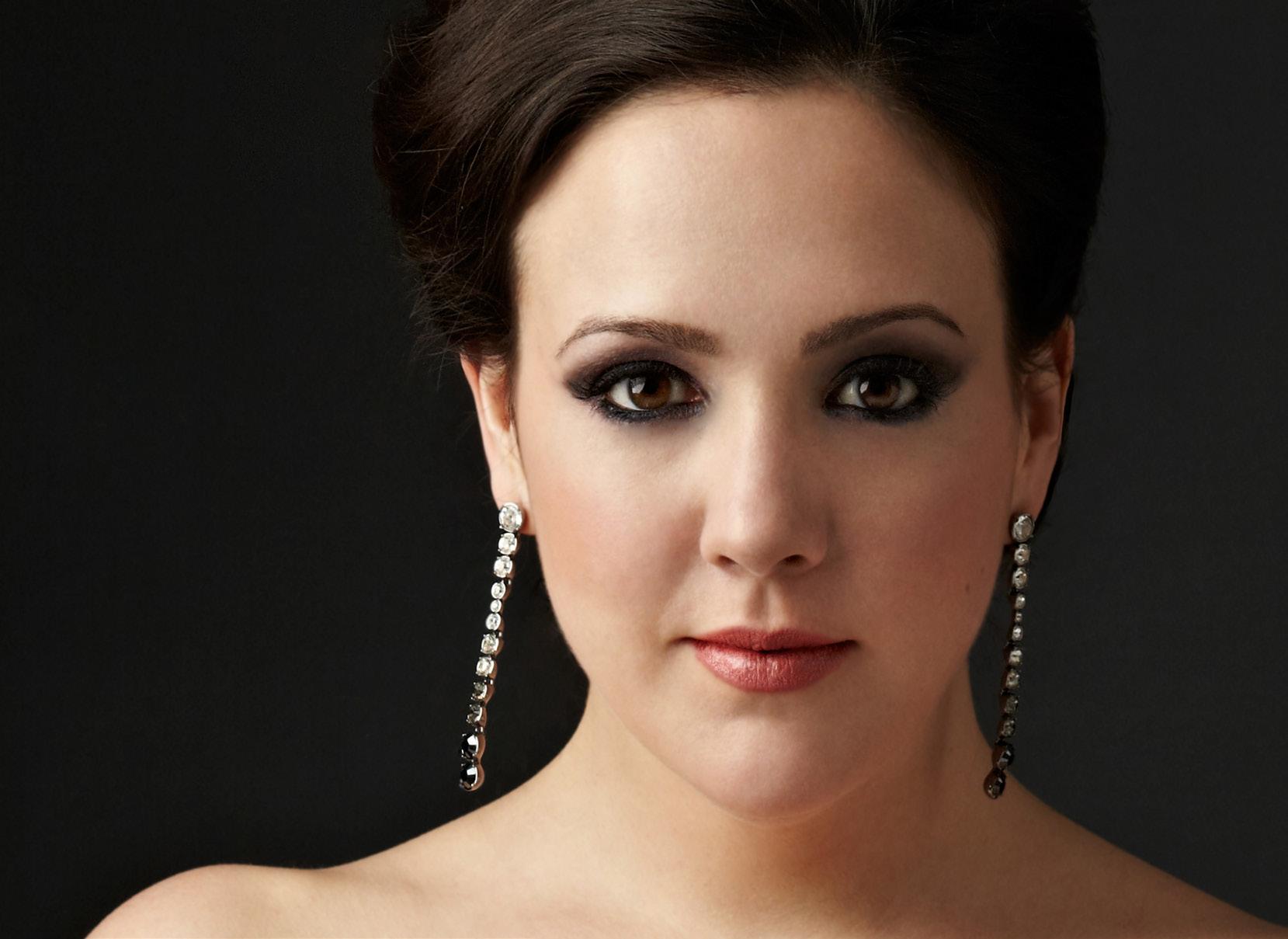
Vignettes: Letters from George to Evelyn: from the Private Papers of a World War II Bride . . . Alan Louis Smith (Born 1955)
The American composer Alan Louis Smith, who is known for setting letters to music, has created a highly evocative song cycle in his Vignettes: Letters from George to Evelyn: from the Private Papers of a World War II Bride. Previously, Smith set letters to create song cycles with stories from the Oregon Trail and Ellis Island. He has been moved by genuine human stories that come from American history, and, with them, he has aimed to create vignettes of times of great strength, struggle, fear, and hope.
Knowing that Smith had created several vocal “vignettes,” a woman approached him, giving him letters she thought he might be inspired to set to music. Her name was Evelyn English, (previously Evelyn Honts.) These letters inspired Vignettes: Letters from George to Evelyn. The letters recount how Lt. Honts survived D-Day, writing letters to his wife that were filled with his observations of army life during World War II. They range from the humorous, depictions of the muddy European front, to the heart-wrenching; just before the end of the war, Honts was killed.
Smith began his music studies in solo piano performance and voice at Baylor University, where received an M.M. in piano performance. During this time, Smith’s interest in collaborative piano began. He completed a Doctorate of Musical Arts in accompanying at University of Michigan in 1986 with Martin Katz. Smith’s compositions for voice and piano have been performed internationally by some of the world’s most acclaimed artists. Many composers influenced Smith, including Samuel Barber, Aaron Copland, Richard Strauss, Hugo Wolf, Gabriel Fauré, and Claude Debussy. Two common elements shared by these composers’ works were important for Smith: the beauty of their music and the ability to set their native language in such a manner that it made the text communicative and clear.
Smith, the chair of keyboard studies and director of the Keyboard Collaborative Arts program at the University of Southern California Thornton School of Music, has been a member of the piano and voice faculty at the Tanglewood Music Center for two decades and has collaborated with and written for some of this generation’s most highly celebrated artists. Smith’s expertise and experience in song literature, chamber music, and opera have made him a sought-after accompanist, coach, teacher of master classes, and judge of international competitions, including the Metropolitan Opera National Council Auditions.
Vignettes: Letters from George to Evelyn, is a neo-Romantic song-cycle composed and premiered in 2002 in honor of Phyllis Curtin’s 80th birthday. The texts of the songs set with poignant beauty are made up of excerpts from the letters of a World War II bride. First Lieutenant George Honts Washington wrote them to his relatively new bride, Evelyn; they had been married less than a year, having been wed in San Francisco on Christmas Eve 1942, about a year before he received orders to be sent overseas. After he left for Europe, the couple never saw each other again; he was killed by German gunfire in March 1945.
Despite the war’s horrors that George experienced, he remained positive in his letters. In addition to George’s letters, Smith includes the telegram bearing the news of George’s death. His final letter to Evelyn, which arrived weeks after she learned about his death, is also included in the cycle. An epilogue concludes the cycle. The cycle is organized as a prologue, four movements, and an epilogue. George’s words are uttered in the reflection of his wife’s voice and reaction as she reads his letters, which begin, “Dearest Darling,” without piano accompaniment.
The dissonances evident in the prologue foreshadow the tragedy that will come later in the cycle. At the beginning of “Dec. ’42, England,” the first song, the voice establishes a tone of passion and agitation. In that letter, George compares a swiftly moving fire to his and Evelyn’s passion. The song ends with the vocalist “lightly and playfully” asking, “You will remember, won’t you?”
“George” is set a cappella, which memorializes the name of the man who wrote the letters. The mood of letters, while becoming progressively more despairing during George’s experience of grim warfare, occasionally appears musically as a dirge, but its dire tone does not keep George from rearticulating his love for Evelyn.
One memorable section, mentioning a “downpour of rain” closes with an abrupt “etcetera,” leaving us to worry about George’s tolerance to continue to endure war’s horrors.
The setting of the Western Union telegraph, here accompanied by a monotonous, inexorable series of detached notes perhaps evoking the teletype mechanism, is the climax of the cycle, as it notifies Evelyn of George’s death; the identity of the impersonal sender, “The Secretary of War,” is delivered with a reverberant fortissimo.
The overall harmonic idiom is mostly tonal and quite nostalgic, with a broad range of vocal styles. Dissonance, evident in the clustered death-knell ostinato in the fifth song, announces that battle is imminent. Smith also delivers touches of humor, as in the rah-rah fight song in the background in “France 14 Oct. ’44”: “The order of the day is mud -- mud – mud.”
What Smith has achieved in the cycle is an evocation of the profound tragedy and transiency of human life and love during war, which, in its way, is more poignant than graphic depictions of the events.
Dearest... Darling...
Dec. ‘42 England
I had seen fire go through the young pines in drought season. But it was no more swift than passion’s blaze through us. Our hearts were rejoined and we were in each other’s arms. We were pitiful in the bliss and pain of it—so lavish were our loves so strong our need and right for each other and so vigorous and sentient our years. You will remember, won’t you?
Good morning, darling. The sun has just come up. It’s a beautiful morning. The grassy downs are sparkling like myriads of diamonds. Sheep are placidly grazing around my tent, satisfied with the prospect of getting both food and drink in the same mouthful and displaying their wooly youngsters with great pride. From the top of our hill, the great sea is as quiet as a lake. The anchored hulls of all the cargo ships are quietly swaying to and from keeping rhythm with gentle swells that do not end in surf. This morning my heart goes out to you.
Mar. 18, ‘45 Germany [Along the Rhine, 6 days before his death; taken from a letter to Evelyn’s mother]
I am still the busiest guy in the seven armies and the days and nights run together and melt away with alarming speed. Still, each one that passes, brings closer that time when my purgatory on earth shall be ended and I can enter into my heaven through the portals of your two lovely arms.
Mar. 21st, ‘45 [three days before his death]
...the build up for the big push rapidly being completed.
March 10, ‘44 [in the middle of the Channel for three days]
I am the only officer aboard from my outfit—the boys are at a high pitch and primed for action. I am not the big chap that you may have imagined... right now I feel very small and unfit, unequal to the task that is awaiting for me just beyond the horizon and I am guilty of hiding a great loneliness and not a little fear behind a demeanor of official bravado and I confess feeling very smug in your love. Shouldn’t I feel more proud of attaining you that if I were the big, brave, invincible knight of your dreams?
France July 2nd ‘44
Downpour of rain—bombers—fighters—mud—shattered dwellings—dead livestock—uprooted trees—etc.
France Oct. 14, ‘44
The order of the day is mud—mud—mud—Thin slippery mud, thick sticky mud, French mud, German mud— The rain is continuing unabated and the channel is pounding at its cliff confines as though it were possessed of the devil himself.
France Nov. 22 ‘44
It is still inconceivable to me that you have chosen to share your life with me...a love which has given me new life, a new goal and a new approach to heaven.
Telegram WESTERN UNION 1945 APR 2 PM 6 24 ..TA84 T.WA291 31 GOVT=WASHINGTON DC 2 753P [MRS EVELYN HONTS- 141 VINE ST RENO NEV-] THE SECRETARY OF WAR DESIRES TO EXPRESS HIS DEEP REGRET THAT YOUR HUSBAND 1LT HONTS GEORGE W WAS KILLED IN ACTION IN GERMANY 25 MAR 45 CONFIRMING LETTER FOLLOWS= A JULIO THE ADJUTANT GENERAL Epilogue
My heart, my mind, my soul is yours—Love me—Love me—I adore you—Love me, too. My best to everyone... Must run now, my sweet—Gotta run now baby… Love, George
Confrey was an American composer and performer of piano and jazz music. His most noted works are “Kitten on the Keys” and “Dizzy Fingers.” “Kitten on the Keys” sold over a million sheet-music copies and made Confrey famous, becoming the third most-frequently recorded rag in history.
Confrey began to play piano at the age of four, and by high school was leading his own dance band. He went to the Chicago Musical College, where he was inspired by the French Impressionists, whose harmony played a key role in his work as a composer and pianist.
In 1915, Confrey took his first professional job as a music demonstrator at the publisher, Harry von Tilzer’s Chicago office; there he was able to publish his first songs. By 1916, he was a staff pianist for a leading publisher of sheet music, Witmarks in Chicago. In 1917, Confrey joined the U.S. Navy, where he played in a Navy-sponsored revue called Leave It to the Sailors, but never was in combat. After World War I ended, he became a pianist, editor, and arranger for a piano roll company and also recorded for AMPICO, a leading player piano company.
Dizzy Fingers, composed in 1923, is an entertaining piece, fully rooted in the folk tradition and considered a classic of the novelty ragtime genre. Only about two minutes long, it has a virtuosic scalar melody as its primary theme. Between appearances of the initial melody, there are two more themes, which also loosely rely on the scale, but to a lesser extent than the primary theme. The last iteration of the initial melody concludes with it literally ascending, scale-wise, to the top range of the piano, humorously, being forced by the end of the piano range, to conclude. Dizzy Fingers was recorded in 1927.
Confrey composed more than one hundred piano works, songs, miniature operas, and numerous piano rolls, music publications, and sound recordings.
Several styles of music were popular in the decade of the ‘40’s, with music trends focused around the jazz, swing, and big band styles that were popular. Big Band was especially important at the beginning of the decade.
“Dizzy Fingers” . . . Zez Confrey (Edward Elzear “Zez” Confrey) (April 3,1895 in Peru, Illinois; died November 22, 1971 in Lakewood, New Jersey)Big Bands typically had band leaders, such as Glenn Miller, who led a group of more than ten musicians split into four sections (sax, trumpets, trombones, and rhythm, with rhythm meaning piano, bass, drums, and guitar). Songs, which were popular at the time, would be performed by various Big Bands, who would each have their own distinct arrangements of them.
The era of World War II, and the music it gave birth to, reflected America’s pain while still retaining and furthering an upbeat, positive feeling about the future. Music related to the war reflected the pain of loss. Many songs had military or war references, and treated the subjects of loss and longing, distance and waiting, but many aimed to be positive and upbeat and to encourage high morale. Performers included Bing Crosby, Frank Sinatra, Judy Garland, Fred Astaire, Glenn Miller, and Bob Hope – USO – United States Service Organization. Other equally popular singers were Ella Fitzgerald, Carmen Miranda, and Rosemary Clooney.
Latin influenced and Latin American music were also popular in the 40s. ‘Hillbilly’ music, later called ‘folk and blues,’ became known as ‘Country and Western’ towards the end of the decade. One significant development occurred in 1941 when Les Paul invented the solid body electric guitar.
Some of the ‘40s most wellknown songs are “Bésame Mucho,” “Fools Rush In” (Where angels fear to tread), “How High the Moon,” “Taking a Chance on Love,” “When you wish upon a Star,” and “White Christmas.”

Thursday, Nov. 10, 2022
PM
Pianist Aaron Diehl is a musical omnivore, comfortable and dexterous in an array of musical genres. For this performance, he and his trio will focus their attention on jazz as Diehl demonstrates his singular talent and collaborative spirit.
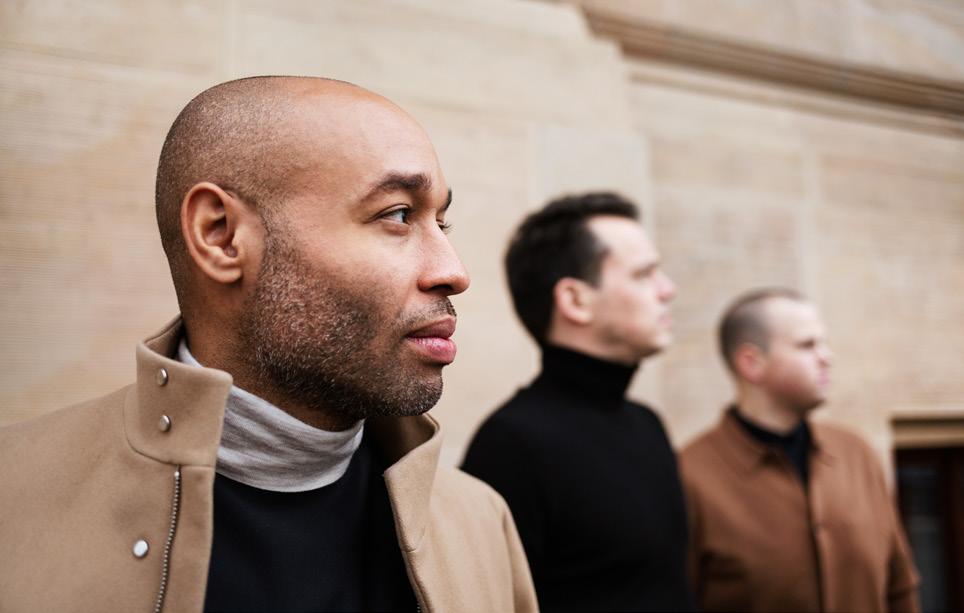
Saturday, Nov. 12, 2022
PM & 8:30 PM
Amal Kassir turns her lived experience as an American- born Muslim of Syrian heritage into fiery spoken word poetry and storytelling activism.

Sunday, Nov. 13, 2022
PM
Camp Concert Hall
Founded to preserve the musical heritage of New Orleans while providing veteran musicians a place to play, Preservation Hall has devoted six decades to delighting audiences at home and around the world.
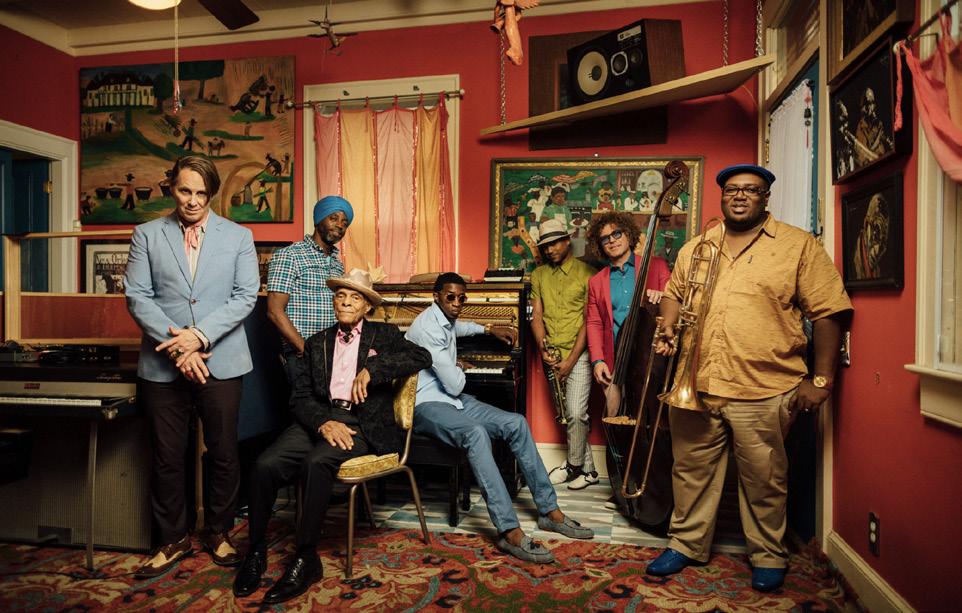
The Box Office is open 1:00 pm to 5:00 pm Monday through Friday, and 90 minutes prior to performances. Tickets are available online anytime at modlin.richmond.edu. Tickets can also be purchased in person or by phone at 804-289-8980.
Beverages and snacks will be available for purchase before performances and during intermission at most Modlin Arts Presents performances. Food and drink are permitted inside the venues so that you can relax and enjoy the performance with your purchases.
If you have accessibility needs, please inform the box office when purchasing tickets so that we can better welcome you to Modlin. Wheelchair and other accessible seating are available in Camp Concert Hall and Alice Jepson Theatre. Both venues are also equipped with assistive listening devices.
Modlin is committed to creating a comfortable, enjoyable, and safe environment for all our patrons. If you are unwell or feel uncomfortable attending an event, please stay home. Create Your Own (4+) Series patrons can enjoy the benefit of flexible ticketing, with options for no-fee ticket exchanges or account credits. Single event ticket purchases are final, and no refunds or exchanges are available. Masks will be available onsite at the Box Office and at the performance venue for the comfort and convenience of patrons.
Gifts to the Modlin Center help support exciting new experiences and learning opportunities. Your contributions encourage creativity, discovery, and expression. Gift Certificates are another way to share the gift of the arts. Gifts can be made at modlin.richmond.edu or in person at the box office. For more information about ways to support the Modlin Center, please email modlinarts@richmond.edu or call 804-289-8980.
